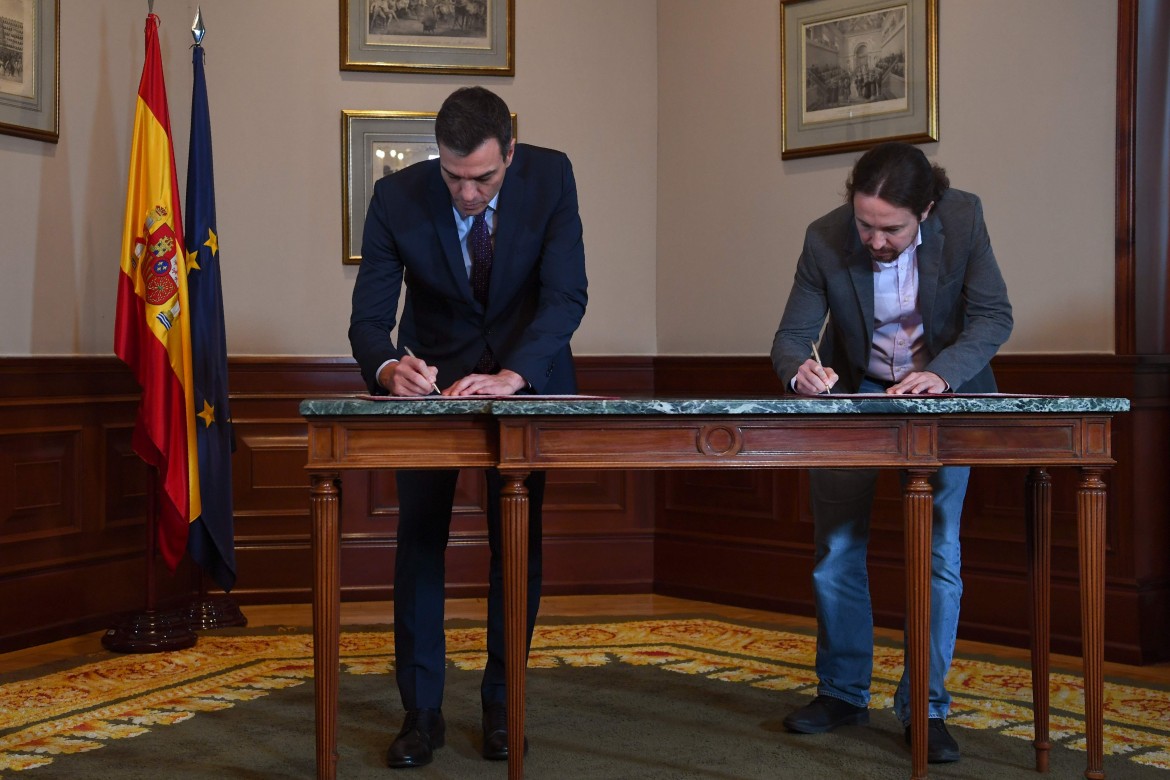Interview
PSOE-Podemos government advances, but budget stands in their path
‘The key moment will be getting this budget approved and convincing the separatist forces to back it. If they manage to do this, they will have a time horizon of at least two years.’

The Spanish political scientist Pablo Simón Cosano wants to reassure those who are still skeptical about Tuesday’s bombshell news. “There will be a government, there is no doubt,” he said. “There is no alternative. Now that the major stumbling block has been overcome, there are no other obstacles.”
But what has changed compared to six months ago?
Today, the parliament is much more fragmented and polarized, and it is much more in line with the parliaments of other countries. But there is also a strategic element. The Socialist Party, which has led the government since the no-confidence motion one year ago, came to the elections of April 28 with just 85 deputies. Afterwards, it had 123. Podemos came with 71 and got 42. It appeared that one would need to seek an agreement between these two with the support of the nationalist parties, but after the administrative elections, which happened in May together with the European elections, talks cooled and there was the failure of the investiture vote in July. Today, things are very different. First, the far-right party Vox has doubled its seats and gotten one million more votes. But most importantly, this election repeat came because of the strategy pursued by the PSOE and Unidas Podemos, who each thought they could improve on their results. Both were unsuccessful, and this has changed the dynamic of the negotiations, because nobody thought that a third election would lead to better results.
Will the third time be the charm, or are we witnessing a mirage?
We don’t know how the negotiation process will work yet, but once the main sticking point has been overcome, namely having a coalition between the PSOE and Podemos, all other items will be discussed in the coming days. But I have no doubt: there will be a government this time.
What is the most likely scenario for parliamentary support?
Unidas Podemos, the PSOE and Más País [the party founded by the former number two of Podemos, Íñigo Errejón, and the former mayor of Madrid Manuela Carmena] have 158 seats together. Those who will certainly vote against will be Vox, the PP and Ciudadanos: 152 votes. If everyone else abstains, this would be enough to obtain the investiture of the government. But we know that other parties could vote against as well: probably the CUP (2 votes) or Junts per Catalunya (8 votes). Then, one must also take into account a possible favorable vote from other parties, such as the Basque nationalists of the PNV (7 votes), the Cantabrian Party, the Galician BNG or the deputy from Teruel (each with 1 vote). This would be enough for the government to pass, if the Esquerra Republicana abstains (13 votes). That’s a path that can be followed.
What are the obstacles to this red-purple Government?
The approval of the budget. The PSOE and Unidas Podemos already had an agreement, which was defeated in Parliament in February due to the Esquerra vote. The key moment will be getting this budget approved and convincing the separatist forces to back it. If they manage to do this, they will have a time horizon of at least two years.
What about Catalonia?
The question is closely tied to the budget. If the polarization and confrontational attitude continues, it will not be possible to pass the budget.
Originally published at https://ilmanifesto.it/non-ci-sara-un-terzo-voto-il-governo-psoe-podemos-ora-si-fara/ on 2019-11-13
